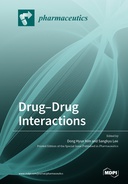Explore

Drug–Drug Interactions
0 Ungluers have
Faved this Work
Login to Fave
Drug–drug interactions (DDIs) cause a drug to affect other drugs, leading to reduced drug efficacy or increased toxicity of the affected drug. Some well-known interactions are known to be the cause of adverse drug reactions (ADRs) that are life threatening to the patient. Traditionally, DDI have been evaluated around the selective action of drugs on specific CYP enzymes. The interaction of drugs with CYP remains very important in drug interactions but, recently, other important mechanisms have also been studied as contributing to drug interaction including transport- or UDP-glucuronyltransferase as a Phase II reaction-mediated DDI. In addition, novel mechanisms of regulating DDIs can also be suggested. In the case of the substance targeted for interaction, not only the DDIs but also the herb–drug or food–drug interactions have been reported to be clinically relevant in terms of adverse side effects. Reporting examples of drug interactions on a marketed drug or studies on new mechanisms will be very helpful for preventing the side effects of the patient taking these drugs. This Special Issue aims to highlight current progress in understanding both the clinical and nonclinical interactions of commercial drugs and the elucidation of the mechanisms of drug interactions.
This book is included in DOAB.
Why read this book? Have your say.
You must be logged in to comment.
